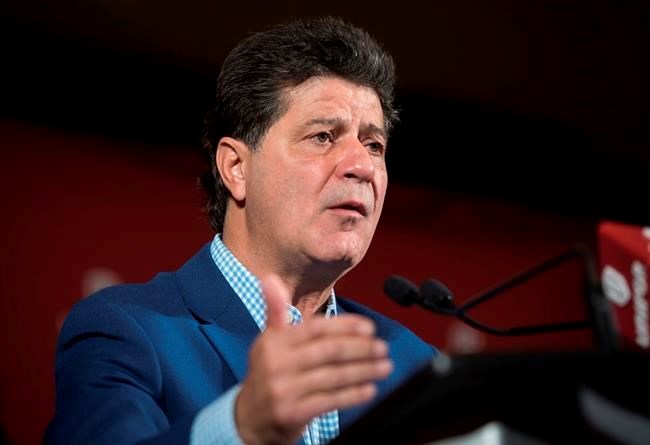On the one-year anniversary of increased restrictions on non-essential travel to Canada, union leaders renewed their call for government aid for the country's struggling aviation sector.
In a press conference organized by Unifor, whose members include workers in the aviation industry, union leaders said they were frustrated by the government's lack of action even after many meetings between union and government officials over the last year.
"We have met with government over a dozen times in the last year — still nothing," said Jerry Dias, national president of Unifor. "We are asking the government once again to create a national recovery plan for the aviation sector."
Dias added that the scale of the layoffs in the airline sector was unsustainable, noting that the possibility of travel to more remote areas in Canada was being threatened. The industry also needs the government to provide a plan for safely reopening the Canadian border, Dias said.
Some cities in Canada have been left with drastically limited access to air travel, particularly in the Atlantic provinces. WestJet and Air Canada have both cut many routes in Atlantic Canada since the start of the pandemic, affecting the regional economy and threatening the survival of certain airports, which depend on revenues from passengers and airlines.
The federal government has promised support for airports and regional airlines, as it works with major carriers on the terms of any bailout for the sector. Ottawa has insisted that airlines refund passengers for flights cancelled due to the pandemic, a condition to which Air Canada has agreed, Dias said earlier this month.
A spokeswoman for Transport Canada, Allison St-Jean, said the government is committed to maintaining a vibrant and competitive Canadian air sector and plans to take steps that ensure the industry is on sound footing when the economy recovers.
Doug Best, the president and chief executive officer of the Canadian Air Traffic Control Association, said Nav Canada, which operates Canada's civil air navigation system, has already laid off hundreds of employees and continues to cull staff in certain regions, which he said could affect safety and jeopardize the aviation industry's recovery.
"We've heard from our members, the highly skilled and dedicated women and men who work every day to keep our skies safe," Best said. "They have serious concerns about the safety risks of Nav Canada's reckless actions."
Diana Kelly, vice president and chief safety and quality officer for Nav Canada, said the organization's safety record is "irrefutably one of the best in the world among air navigation service providers."
Air Canada said in its most recent earnings call in February that bailout talks between the airline and the government had accelerated and that the company expected the parties could reach a deal soon.
Thousands of aviation workers in Canada have been laid off since the start of the pandemic, including many at the beginning of 2021, when Canadian airlines suspended all flights to sun destinations until April 30.
Mike McNaney, president and chief executive officer of the National Airlines Council of Canada, an industry group, said his organization supported Unifor's call for sectoral support and a clear recovery plan for the aviation industry.
"We must move forward with a recovery strategy that is predicated on a science-based approach to testing and vaccinations that ultimately results in reduced quarantine measures and border restrictions," McNaney said.
This report by The Canadian Press was first published March 16, 2021.
Companies in this story: (TSX:AC)
Jon Victor, The Canadian Press



